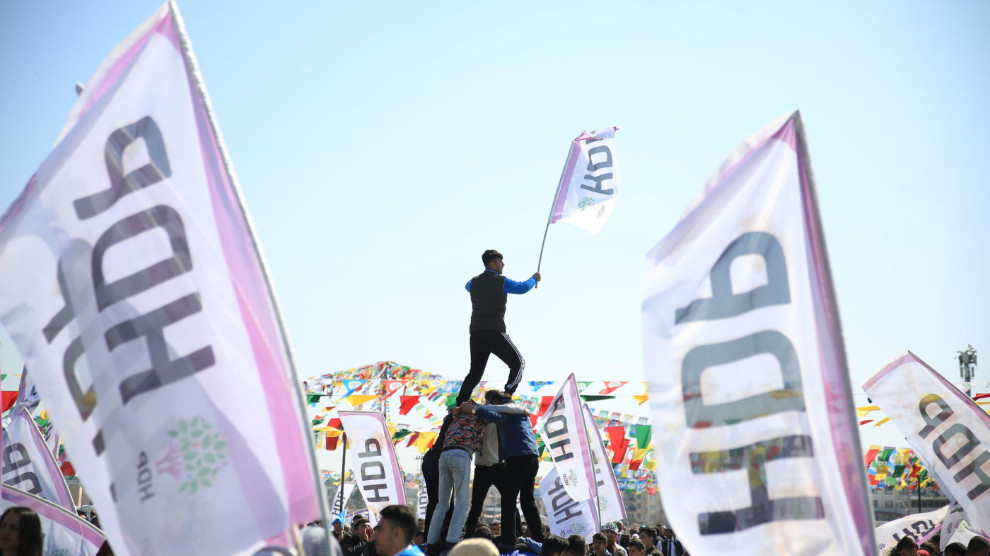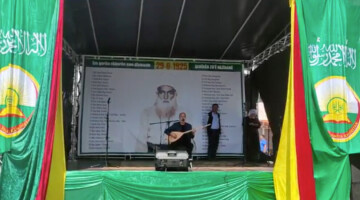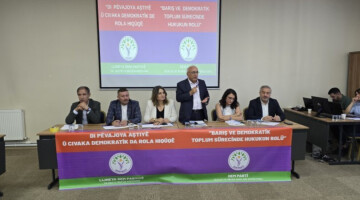The GUE/NGL reminded that "Turkey issued arrest warrants against 82 members of the opposition HDP party, including the co-mayor of the city of Kars and former members of parliament and party leaders. Members of the “movement of the nameless” platform were also among those detained whereas the spokeswoman of the “Party for Social Freedom”, Perihan Koca, was taken into custody as part of a separate trial."
The GUE/NGL called "on Turkey’s government to immediately end repression against the democratic opposition and release the political prisoners."
The justification for the arrests, said the statement, "is beyond grotesque. Turkey’s judiciary has accused them of being responsible for demonstrations in October 2014 that were violently repressed and in which several people were killed by Turkish security forces. These demonstrations took place in solidarity with the people of Kobane in northern Syria, which was at that time under siege by ISIS."
The statement added: "These arrests cannot be justified under the rule of law or even arbitrary but come with political motives. Erdogan’s regime is attempting to criminalise the HDP and to split the democratic opposition in Turkey. This is happening while Turkey’s economic situation has given rise to misery in the country.
Poverty and unemployment are increasing rapidly, the Turkish lira is in free fall and the country’s foreign currency reserves have been exhausted. While the coalition between political Islam (represented by AKP and Erdogan) and extreme right-wing nationalism (represented by the MHP) is increasingly losing voters, the possibility for the formation of a broad alliance of parties is expanding. The HDP has an important role to play in tipping the balance. To prevent this from happening and to maintain power, Erdogan needs a political atmosphere in Turkey in which any kind of political cooperation with the HDP is delegitimised."
The GUE/NGL continued: "We are very concerned about this development. This politically calculated step indicates that the extent of repression against the democratic opposition in Turkey will gradually increase. The European Commission must not see Erdogan’s willingness to negotiate on the crisis in the Eastern Mediterranean, which we welcome, as a distraction from the increased repression in Turkey. The path of intimidation and repression of the civil and democratic opposition will not solve Turkey’s social and economic problems, but rather worsen them."













